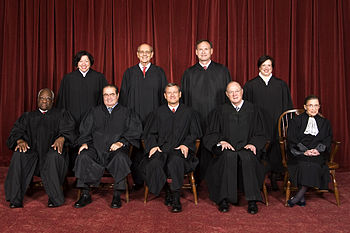Do not host or visit relatives for this Thanksgiving. Despite promises of a cure and the slow recovery of essential systems, the virus remains a danger in the modern day. For the health of those you care about, it is best to celebrate this Thanksgiving from afar.
At this point, you may have rolled your eyes in apathy. This is to be expected, by now, nearly every Sally and Joe has grown jaded of the isolation of the present day. The calls from authorities to “Maintain your distance” and “Avoid public gatherings” have been repeated for long enough that their impact only reaches deaf ears. Given enough time, it is almost human nature to forget caution and return to the comforts of the status quo. It is because of this, that I fear that in the splendor of the holiday, important cautions will go unheeded.
The allure of the holidays is strong. To those of us that grow restless, a spark of festivity may seem to be a cure for the bothersome and downtrodden year we inhabit. The temptation to return to the “normal” is understandable, even if a tad reckless.
At the same time, it is important that we remember the dangers we face in the present year. If we are to proceed with caution, we must remind that for every person we value there are responsibilities that must be taken to protect them from danger and harm.
The grim truth is this; if you celebrate Thanksgiving as normal this year, you will bring danger upon friends and family, and risk the safety of people you do not know.
The first and foremost reason to avoid a traditional Thanksgiving get-together is for the safety of your parents and older relatives. COVID-19 has been shown to be exceedingly dangerous for older individuals. While this has been known for some time, the potential to expose older relatives to a strong respiratory disease is never a good thing.
To put the danger in perspective, according to the CDC in their release “COVID-19 Hospitalization and Death by Age,” people in their 30s are four times as likely to die of COVID-19 than someone in their 20s. This pattern continues to be worrying for older ages. Someone in their 40s or 50s has a ten or thirty times higher chance of dying of COVID respectively.
The risk to older family members is sobering, to say the least. However, the possible death of older family members is not the only disease related adversity to worry about this Thanksgiving. For unfortunately, the spread of disease is silent and insidious and can poison lives in ways that can be nearly impossible to prepare for.
Now for a second picture yourself receiving an infection via a dust particle on a serving spoon, tablecloth or hug with a friendly uncle. You become infected but, luckily for you, your case isn’t life-threatening. You suffer through the illness for a bit but ultimately come out as a survivor. For the most part you make a good recovery, but your COVID Problems do not end there.
COVID has a host of lasting effects ranging from common and annoying to unusual and mildly crippling. For the sake of a realistic depiction, please suspend your disbelief to imagine you have the slightly uncommon long-term symptom of moderate respiratory issues.
I have asthma, it is a condition caused by the scarring of my lung. Because of this, I feel experienced enough to explain the royal pain that is lung damage. Though asthma does not physically cripple me in most circumstances, having a damaged lung has never been pleasant experience.
Getting back to your scenario, after your victory over COVID, you must now consider the unfortunate side effect of lasting lung damage. While your life may go on, a lingering burden will be yours to carry for as long as you live. Visualize overexerting yourself a little during a run and your vision briefly going black from lack of oxygen. Imagine the stinging pain in your lower right lung, your body begging for the pain to stop, and the cruel irony that stopping your lungs from moving will only make everything worse. Imagine pain, from nothing more than the simple act of moving air in and out of your chest on a cold morning.
From my personal suffering, I can say that the most irritating effect of a damaged lung is the inability to sleep due to lung pain. It is a little known fact that it is nearly impossible to sleep when one’s breathing is obstructed. Sleepless nights are no stranger to people who suffer in the lung.
A damaged lung, while not life threatening in most cases, is an ailment that lasts for life, and in most cases is mildly painful.
While I may admit that my depiction is somewhat dramatic to the average reader, the risk of long term injury exists for each and every family member exposed to disease. Every point of contact introduces a chance for the virus to hurt the people you celebrate with, the people you love, and the people you cherish enough to share the holiday.
However, not all hope is lost. While the facts may seem grim, your future does not necessarily follow this path.
On your side is the power of preparation. By using careful planning and consideration, it is possible to celebrate while minimizing the risk of infection. Taking a few simple steps and thinking ahead does wonders in ensuring the safety of yourself and others.
Notably, the safest way to celebrate this Thanksgiving is to limit the people you celebrate with to the people who live in the same house or apartment. Remaining with the people you already have contact with is the best way to ensure the safety of you and your family.
However, if it is entirely necessary to attend a dinner with relatives, here are a couple of guidelines based on a CDC article that you can follow to minimize your chance of getting COVID.
- Bring your own food to eat – Bringing your own food prevents you from getting sick from contaminated cooking.
- Wear a mask when not eating – By wearing a mask when not eating, you can reduce your chances of becoming infected or spreading the virus before and after the meal. Storing away your mask while eating may also be helpful. This will ensure the mask does not get contaminated while not in use.
- Use disposable plates and knives – The best way to keep your dishes clean is to not have dishes! Disposable dishes and condiment packets reduce the contact between your food and other’s food. Doing this protects you from contamination even more.
- Do not dine with someone who has COVID – it goes without saying that dining with someone who has COVID has a high chance of getting you infected.
By taking proper precautions you can keep yourself and your loved ones safe.
Ultimately, Thanksgiving in times of COVID is a risky proposition. While the comforting allure of the holidays is something that many of us desire in these harsh times, it is important that we remain cautious and aware of what is at stake during our celebrations. This year, avoid celebrating with relatives, and if celebration is unavoidable take precautions to ensure the safety of yourself and your loved ones.
We all want to celebrate, but for this year, it may not be worth the risk.
Thank You for reading, and please, have a safe Thanksgiving.
Han Nelson is the A&E Editor of The Express. Follow him @SCP_TLDR.



